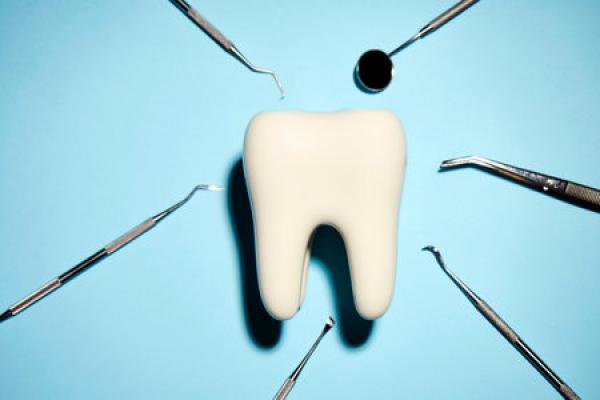
Tooth enamel might not be something you think about regularly, but it plays a vital role in the health of your teeth and your overall oral wellness. It is the hard, outer layer of your teeth that serves as a robust shield to protect them from daily wear and tear. Think of enamel as your first line of defense against tooth decay and cavities. Here’s some more information on enamel and how you can maintain yours:
What is Enamel and What Does it Do?
Enamel is the hardest substance in your body, even harder than your bones. It’s the outermost layer of your tooth, and it’s designed to protect the softer, more sensitive inner layers of your teeth from decay, temperature extremes, and the impacts of biting and chewing. Although it’s incredibly hard, enamel isn’t invincible. It can chip, crack, and erode over time due to various factors such as poor oral hygiene, diet, and certain medical conditions. This erosion can lead to discomfort, tooth decay, and many other oral health problems.
What Happens When Enamel is Gone
The loss of enamel, often referred to as enamel erosion, can lead to a host of dental problems. It is important to note that once enamel is gone, it cannot be rebuilt. That makes it more crucial to maintain and strengthen enamel to prevent issues such as:
Tooth Discoloration
The layer beneath the enamel, called the dentin, is naturally yellow. When enamel erodes, the dentin becomes more visible, leading to yellow or discolored teeth.
Tooth Sensitivity
Dentin is also sensitive, which means that without the protective layer of enamel, your teeth become more sensitive to hot, cold, sweet, or acidic foods and drinks.
Increased Risk of Cavities and Decay
Enamel acts as a shield against tooth decay. When it’s gone, bacteria can easily damage the inner parts of your tooth.
How to Protect, Strengthen, and Treat Enamel
Luckily, there are several steps you can take to protect your tooth enamel. First, you can maintain good oral hygiene by brushing and flossing regularly. You can avoid acidic food and drinks as much as possible and rinse your mouth with water after consuming them. It’s also wise to use fluoride toothpaste and mouthwash to strengthen and remineralize your enamel. You should also regularly visit the dentist every six months, as they will be able to detect early signs of erosion. Your dentist can also help strengthen your enamel with fluoride treatment.
And if you’re enamel is already damaged, there are treatments available, such as bonding, crowns, or veneers, depending on the severity of the issue.
At Capital Dental Group, we believe that understanding the importance of enamel and how to care for it is a key aspect of maintaining excellent oral health. Whether you’re concerned about enamel erosion or looking for ways to strengthen your enamel, our team of dental professionals is here to guide and assist you. Give us a call at 661-861-8000 to schedule an appointment today!
